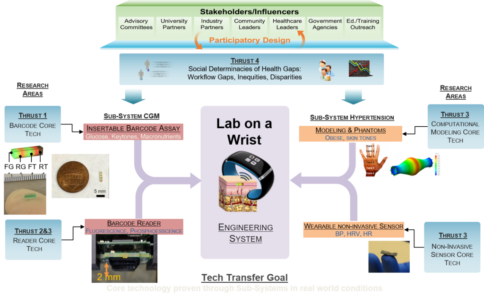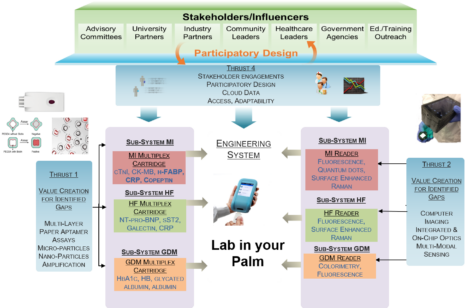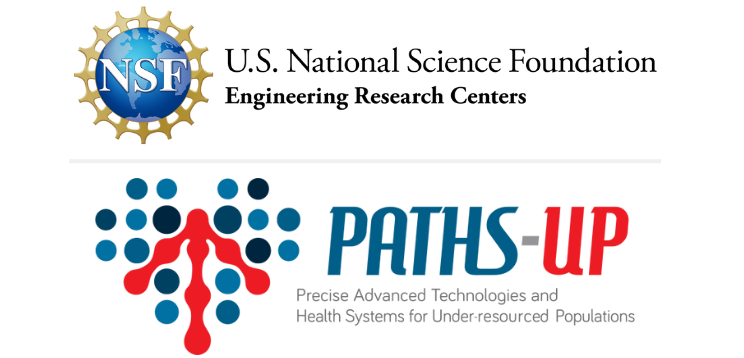Under-resourced communities in every U.S. state have a higher prevalence and less access to equitable healthcare services. Thus, many people in these communities go undiagnosed or are diagnosed late, which can lead to serious consequences. To address this challenge, PATHS-UP will initially develop advanced technologies to prevent, delay the onset, and manage diabetes and cardiovascular disease. This requires both the development of transformational health technologies and systems and a paradigm shift in how these technologies are integrated into communities. Beyond the obvious societal health impact of the center’s systems, the students, post-docs, and faculty nurtured by the center’s intellectual community will also be a significant outcome of PATHS-UP.
The outcome of PATHS-UP is related to the interconnection between scientific discovery and technological innovation.
PATHS-UP will develop transformative Lab-in-your-Palm (LiyP) platforms and the Lab-on-a-Wrist (LoaW) platforms to monitor key biomarkers (biochemical, biophysical and behavioral) of chronic disease at the point-of-care.


The research is broken down into four interconnected research thrusts:
Each thrust will lead to engineered systems and enabling technologies founded on rigorous research in biomaterials, nanoscale systems, sample enrichment, computational imaging, multimodal data integration, and machine learning. The testbeds will include one-of-a-kind in vitro phantoms, human subject studies in controlled lab environments, and patients in underserved communities.
Developing and integrating these transformational systems into communities requires a multidisciplinary team, including engineers, medical doctors, public health experts, industry professionals and community health leaders. The team will garner input from all stakeholders and use participatory design and community engagement to prevent PATHS-UP from merely throwing technologies at these communities, and instead develop technologies that seamlessly integrate into their lives.
